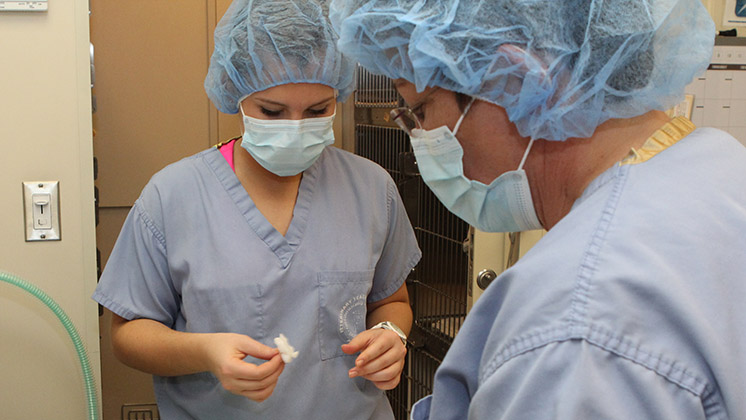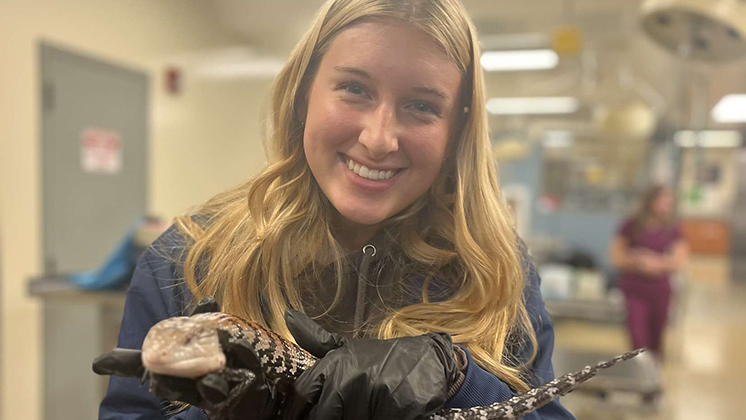How Do I Become a Veterinary Technician (Vet Tech)?

by Josh L. Clark, MS, RVT and Kelsey Wirt, MS, LVT
If you're passionate about animals and have an interest in science and medicine, then becoming a vet tech might be the perfect career for you. How do you become a vet tech? The journey to this rewarding profession typically involves several key steps, including education, credentialing, and gaining practical experience, all of which prepare you for the wide range of duties encompassed in vet tech jobs.
Step 1: High School Preparation
Your journey to becoming a vet tech can start as early as high school. Courses in biology, chemistry, and mathematics can provide a solid foundation for your future studies. Job-shadowing or working part-time at an animal shelter, veterinary clinic, or similar setting can give you valuable hands-on experience with animals.
Step 2: Post-Secondary Education
The next step is to earn a post-secondary degree in veterinary technology. Most vet tech jobs require an Associate Degree and/or a Bachelor’s Degree in Veterinary Technology. Vet tech programs must be accredited by the American Veterinary Medical Association (AVMA) in order for graduates to be eligible for credentialing. Coursework usually includes animal anatomy and physiology, veterinary pharmacology, animal nursing and nutrition, radiology, anesthesiology, and more.
Step 3: Certification, Licensure, or Registration
After completing your degree, most states require vet techs to become credentialed (certified, licensed, or registered depending on the state). Although requirements can vary, this process generally involves passing the Veterinary Technician National Examination (VTNE), a standardized exam administered by the American Association of Veterinary State Boards. Some states also require passing a state exam in addition to the VTNE.
Step 4: Clinical Experience
Gaining practical experience is a crucial step in becoming a vet tech. Many vet tech programs include internships or externships as part of their curriculum, allowing students to gain hands-on experience in a veterinary setting. After graduation, entry-level vet tech jobs can provide further practical experience.
Step 5: Continuing Education
Most states require vet techs to participate in continuing education (CE) to maintain their certification, licensure, or registration. The amount of CE required each year will vary from state to state. This helps vet techs stay up-to-date with the latest developments in veterinary medicine.
Becoming a vet tech involves a combination of academic preparation, credentialing, and hands-on experience. Being a vet tech offers the opportunity to improve the health and well-being of animals every day. This rewarding profession also offers a variety of career paths in addition to working in a clinical setting such as research, education, shelter medicine, practice management, and more.
Start Your Veterinary Technician Journey
Find your calling as a Purdue Veterinary Technician!
Not quite ready to apply? Connect with us to learn more.
Suggested Articles

How Much Does It Cost to Go to Vet Tech/Nursing School in the US?
Discover the varying costs of vet tech education in the U.S., including factors like school type and residency, and learn about financial aid opportunities to make pursuing a veterinary technician career more accessible.
Read more
Does a Vet Tech Degree Help Me Become a Veterinarian?
Learn whether a vet tech degree can serve as valuable experience for aspiring veterinarians.
Read more
Can I Get Financial Assistance for Vet Tech/Nursing School?
Explore scholarships, federal aid, and veterinary partnerships as invaluable resources to afford vet tech school tuition and overcome financial challenges in pursuing a veterinary technician career.
Read more
